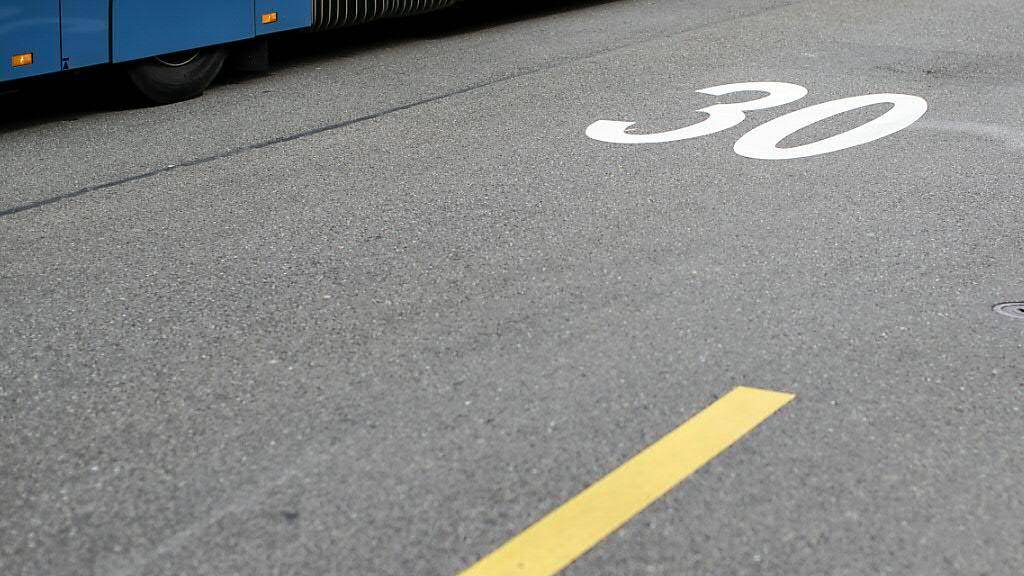The reason for the complaints were the changes to the 2022-2023 timetable ordered by the Zurich Transport Association. Both cities complained about reduced clock times for certain lines. They also demanded that the transport association have to bear the additional costs that would arise due to the introduction of the 30 km/h speed limit on certain sections.
The Zurich government council rejected the cities’ appeals, after which they went to the highest Swiss court. In two judgments published on Thursday, the Federal Court decided that the cantonal administrative court was responsible for the complaints.
The Zurich Administrative Justice Act stipulates that complaints to the administrative court against orders of the Transport Council regarding the design of basic services and the determination of other transport services are inadmissible.
No political character
However, according to the Federal Court, cantonal law may not be stricter than the regulation in the Federal Court Act when it comes to restricting access to court. This stipulates that for decisions of a predominantly political nature, another authority may be appointed as the immediate lower instance of the Federal Court instead of a court.
In this case, however, these are not questions of a predominantly political nature. The exclusion of a judicial review of orders from the Transport Council in the Canton of Zurich is therefore not in accordance with federal law.
Judicial control ensures that the parties cooperate sufficiently and that overarching fundamental questions can be clarified – especially with regard to future timetables or basic services. (Judgments 2C_302/2023 and 2C_309/2023 of October 11, 2024)
What specific aspects of the revised timetable and 30 km/h speed limit introduction led the two cities to challenge the Zurich Transport Association’s decision in court?
## Interview: “Navigating Transit Disputes: The Zurich Transport Case”
**Introduction:**
Welcome to World-Today-News. Today we’re diving into a fascinating legal battle surrounding public transit in Zurich. Joining us are [Guest 1 Name], a legal expert specializing in administrative law, and [Guest 2 Name], a representative from a Zurich commuter advocacy group. Let’s explore the complexities of this case and its implications for future transit planning.
**Section 1: The Root of the Dispute:**
**(To both guests):**
* Can you explain the initial complaints raised by the two cities against the Zurich Transport Association?
* What specific concerns did they have regarding the revised timetable and the 30 km/h speed limit introduction?
**(To Guest 2):**
* How did these changes impact commuters in practical terms? What were the main frustrations voiced by your group?
**Section 2: The Legal Battle:**
**(To both guests):**
* Can you walk us through the legal journey of this case? What were the key arguments presented before the Zurich government council and then the Federal Court?
* The Federal Court ruled that the Zurich government council wrongly rejected the cities’ appeals. Can you elaborate on the legal reasoning behind this decision?
**(To Guest 1):**
* What are the broader implications of this ruling for the system of administrative law in Zurich and potentially Switzerland at large?
**Section 3: Policy Implications and Future Directions:**
**(To both guests):**
* What does this judgment mean for the future of transit planning in Zurich? How will it influence the decision-making process involving timetables, speed limits, and other adjustments?
*
Moving forward, how can different stakeholders, including the government, transport providers, and commuter groups, work together more effectively to address concerns and find mutually beneficial solutions?
**(To Guest 2) :**
* What are your hopes for future collaborations between your advocacy group and the Zurich Transport Association?
**Outro:**
This complex legal case highlights the delicate balance between efficient public transport and addressing the concerns of citizens. We thank our guests for providing valuable insights into this important issue.
The discussion surrounding transit planning in Zurich is far from over, and World-Today-News will continue to follow developments in this evolving landscape.

 ・Model for 3D printing to download・Cults
・Model for 3D printing to download・Cults